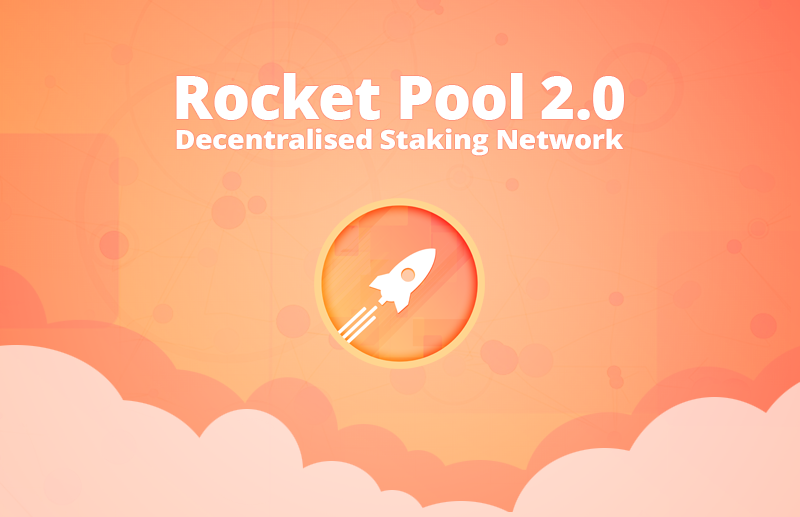This guide is a practical companion for using Rocket Pool to stake ETH and receive rETH. You’ll learn how rewards and fees work, how to use rETH in DeFi, how withdrawals function, and what’s required to run a node via mini-pools.

Staking Options with Rocket Pool (and Alternatives)
Rocket Pool enables decentralized liquid staking and an accessible path for node operators. Choose the path that matches your risk/effort profile.
Comparing Staking Methods
| Method | Best For | Key Features | Considerations |
|---|---|---|---|
| Rocket Pool Liquid Staking (rETH) | Liquidity + yield | rETH appreciates vs ETH as rewards accrue; broad DeFi integrations | Subject to protocol/market risks; rETH can trade at premium/discount |
| Rocket Pool Node Operator | Extra rewards & decentralization | Run a mini-pool with 8 ETH bond + RPL collateral; earn commission | Ops burden, hardware, monitoring; slashing/penalty risk |
| Native Solo Staking | Maximal control | Run a full validator with 32 ETH | High capital & operational complexity |
| Exchange Staking | Simplicity | Custodial yield | Counterparty risk; limited DeFi composability |
Understanding Rewards & Fees with Rocket Pool
rETH reflects staking rewards earned by the Rocket Pool validator set. The token’s value increases relative to ETH over time as rewards accumulate, net of commission and protocol parameters.
Typical Fee & Flow Components
| Component | Typical Behavior | Notes |
|---|---|---|
| rETH Appreciation | Value vs ETH rises | Captures staking rewards net of commission |
| Node Operator Commission | % of rewards | Paid to node operators for running validators |
| RPL Collateral Incentives | Extra yield for operators | Operators stake RPL; affects economics & security alignment |
| Gas Costs | Ethereum tx fees | Stake, unwrap, approve, and DeFi actions incur gas |
Safety & Best Practices
Liquid staking and node operation both carry risks. Adopt strict operational hygiene and diversified DeFi usage.
Practical Protections
- Use official links: Bookmark the Rocket Pool app; avoid phishing or fake support.
- Monitor rETH pricing/liquidity: rETH can trade at a premium/discount; plan entries/exits.
- Allowance hygiene: Approve minimal amounts and periodically revoke old approvals on Etherscan.
- Hardware wallets: Keep keys offline; verify on-device details.
- Operators: Ensure reliable uptime, alerts, backups; follow client diversity and updates.
- Diversify DeFi venues: Spread rETH positions and monitor collateral health factors.
Compliance & Risks
Staking involves market risk (ETH price, rETH market liquidity) and protocol risk (smart contracts, validator penalties). Keep records for accounting/tax and ensure your setup matches your risk tolerance.
Authoritative & Trustworthy Resources
For deeper technical and safety details, consult official docs and wallet resources.
- Ethereum Staking — Consensus basics, validator roles, and slashing.
- MetaMask Learn — Wallet safety, approvals, and gas.
- Etherscan — Verify contracts, track txs, manage allowances.
Frequently Asked Questions (FAQ)
What is rETH?
rETH is Rocket Pool’s liquid staking token. Its value increases vs ETH as network staking rewards accrue to the pool.
How do node operators earn?
Operators run mini-pools with an 8 ETH bond plus RPL collateral, earning block rewards and a commission from delegated stake.
Can rETH depeg from ETH?
rETH isn’t a hard peg; market price may vary with liquidity and demand. Over time, rETH’s intrinsic value tracks staked ETH + rewards.
How do withdrawals work?
You can redeem rETH for ETH through the protocol. Fulfillment depends on withdrawal availability/queues and validator exits.
What are the fees?
Node operator commission is taken from rewards (not principal). Gas costs apply for staking, redeeming, and DeFi usage.
Which wallets work best?
MetaMask or Rabby for daily use; pair with a Ledger/Trezor for larger balances. Always keep ETH for gas.
Can I use rETH in DeFi?
Yes—rETH is integrated across many lending markets, DEXs, and structured products. Check collateral factors and risk parameters per protocol.
My transaction failed — what now?
Common causes: insufficient gas, RPC issues, or allowance errors. Increase gas, refresh RPC, re-approve if needed, and retry with a small test.
